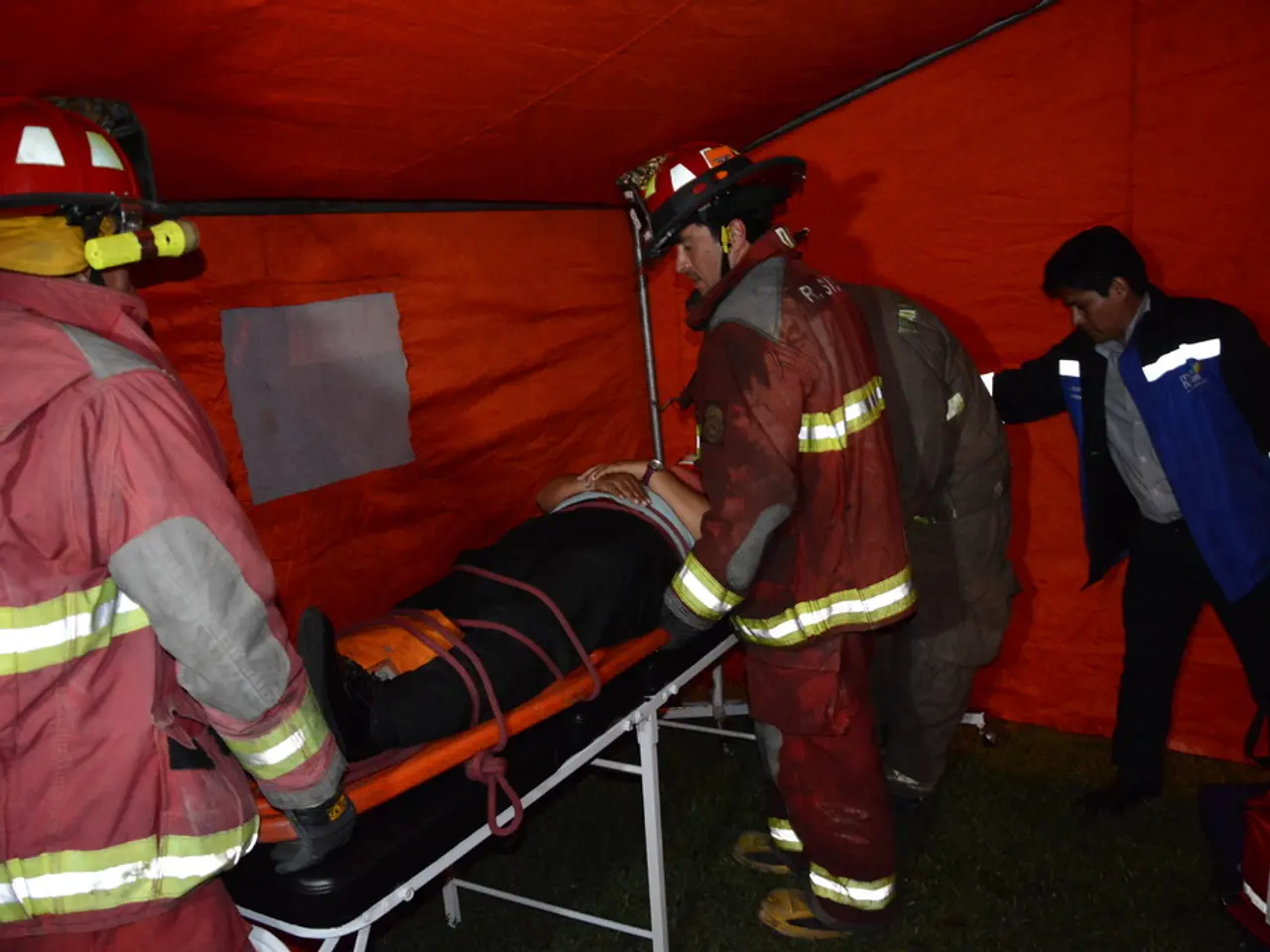International diplomats alongside 26 foreign ministers advocate for Non-Governmental Organizations (NGOs) to gain access to the Gaza Strip
Urgent Call for Humanitarian Aid Access to Gaza Strips Remains a Concern
The ongoing crisis in the Gaza Strip continues to be a source of concern for representatives of 26 Western states and the European Union (EU), as well as international humanitarian organizations. Despite a joint statement issued by these entities on August 12, 2025, urging Israel to authorize NGO aid shipments and unblock humanitarian operations, the delivery of food, clean water, and medicine to the region remains heavily obstructed.
The joint statement, signed by three EU commissioners, including EU foreign affairs chief Kaja Kallas, as well as the foreign ministers of most EU countries, Australia, Canada, Iceland, Japan, Norway, Switzerland, and the UK, highlighted the urgent need for immediate and large-scale humanitarian aid access, including food, nutrition supplies, shelter, fuel, clean water, and medical equipment into Gaza.
However, the United Nations Relief and Works Agency (UNRWA) has not been allowed to bring any humanitarian aid, including medicines and medical supplies, into Gaza since early March 2025. The area remains under intense Israeli military operations and blockade, with over 86% of Gaza under displacement orders or military control, causing severe shortages and worsening humanitarian conditions.
The situation in Gaza is critical, with millions affected by blockades, displacement, and ongoing conflict. UN experts have condemned the blocked aid, highlighting the dire consequences, including 180 deaths due to malnutrition reported recently. They have also called for the dismantling of controversial Gaza Humanitarian Foundation sites linked to ongoing violence against civilians seeking aid.
In addition, humanitarian organizations report extremely high risks for aid workers, with dozens killed this year, hampering aid delivery significantly. Aid groups stress the urgent need for protection of humanitarian personnel to continue lifesaving assistance under these dangerous conditions.
Israeli Prime Minister, Benjamin Netanyahu, has reiterated that there is no famine in the Gaza Strip. However, he has also stated that Israel has provided aid to the region, but the only ones going hungry are the hostages held by Hamas.
In conclusion, while diplomatic pressure and calls for humanitarian access by the EU and international partners exist, actual delivery of food, clean water, and medicine to Gaza faces severe restrictions and life-threatening challenges on the ground due to security and political obstacles. The required aid for the Gaza Strip includes food, shelter, fuel, clean water, and medicine, and the representatives continue to pressure Israel to prevent famine in the region.
The crisis in Gaza Strips, surrounded by war-and-conflicts, is a significant focus of politics and general news, with representatives of multiple countries and the EU calling for immediate humanitarian aid access. The ongoing blockade and military operations have resulted in severe shortages of food, clean water, and medicine, causing worsening humanitarian conditions and over 180 deaths due to malnutrition.






